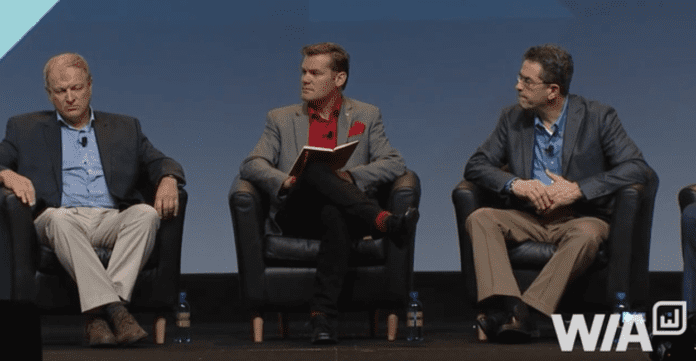Juniper Research claims street lighting upgrades will deliver $15 billion in cumulative energy savings for cities in the period to 2023. These savings will be achieved both by converting lamps to energy-efficient LEDs and by adding connectivity to monitor and control individual lights.
It said the rise of smart-city platforms are enabling street lighting to act as a “hub point” for additional smart city services, such as public safety and smart transport. Siemens is the best in the business for platform provision, it said, ranking its MindSphere platform as the premier smart-city system, ahead of equivalent offers from rivals like Oracle, IBM, Huawei, and Itron
Juniper reckons on 50 per cent energy savings per light, through this combination of more efficient LEDs and tighter controls.
Of all smart city applications, only street lighting stands up to close scrutiny. The business cases for parking and garbage, the other functions in the holy trinity of smart city applications, are harder to make.
UK provider Telensa calculates smart lighting delivers a 70-75 per cent reduction in energy costs, with 50 per cent achieved just by switching to LEDs, and a further 20-25 per cent eked-out with lighting controls. Payback is pegged at around five years.
Juniper Research said the number of connected street lights will grow on average by 42 per cent per annum between 2019 and 2023, reaching close to 70 million units by the end of the period. Earlier this week, rival firm ABI Research predicted annual revenue from smart street lights will grow at compound annual rate of 31 per cent to reach $1.7 billion in 2026.
As part of the same analysis, Juniper Research ranked the top smart city platform vendors, placing Siemens top of the pile with its MindSphere offer, ahead of Oracle, IBM, Huawei, and Itron.
“Siemens MindSphere platform, coupled with its City Performance Tool and recent Mendix acquisition represents a compelling offering. In addition, the company is able to offer significant market vertical expertise to aid in service launches,” it said.
Oracle, in second, offers a “broadly capable platform in addition to extensive worldwide smart city deployment experience”, it remarked.
The research found many cities are now moving away from point solutions towards platform procurement. It argued that street lighting platforms would serve as the entry point for a number of cities looking to deploy smart city projects.
“The cost savings enabled by smart street lighting mean that many cities will look to this as a first-stage smart city project,” remarked research author Steffen Sorrell. “Choosing an open platform will be key here, as additional services can be launched from the same point, while simulataneously driving up third party vendor competition.”

